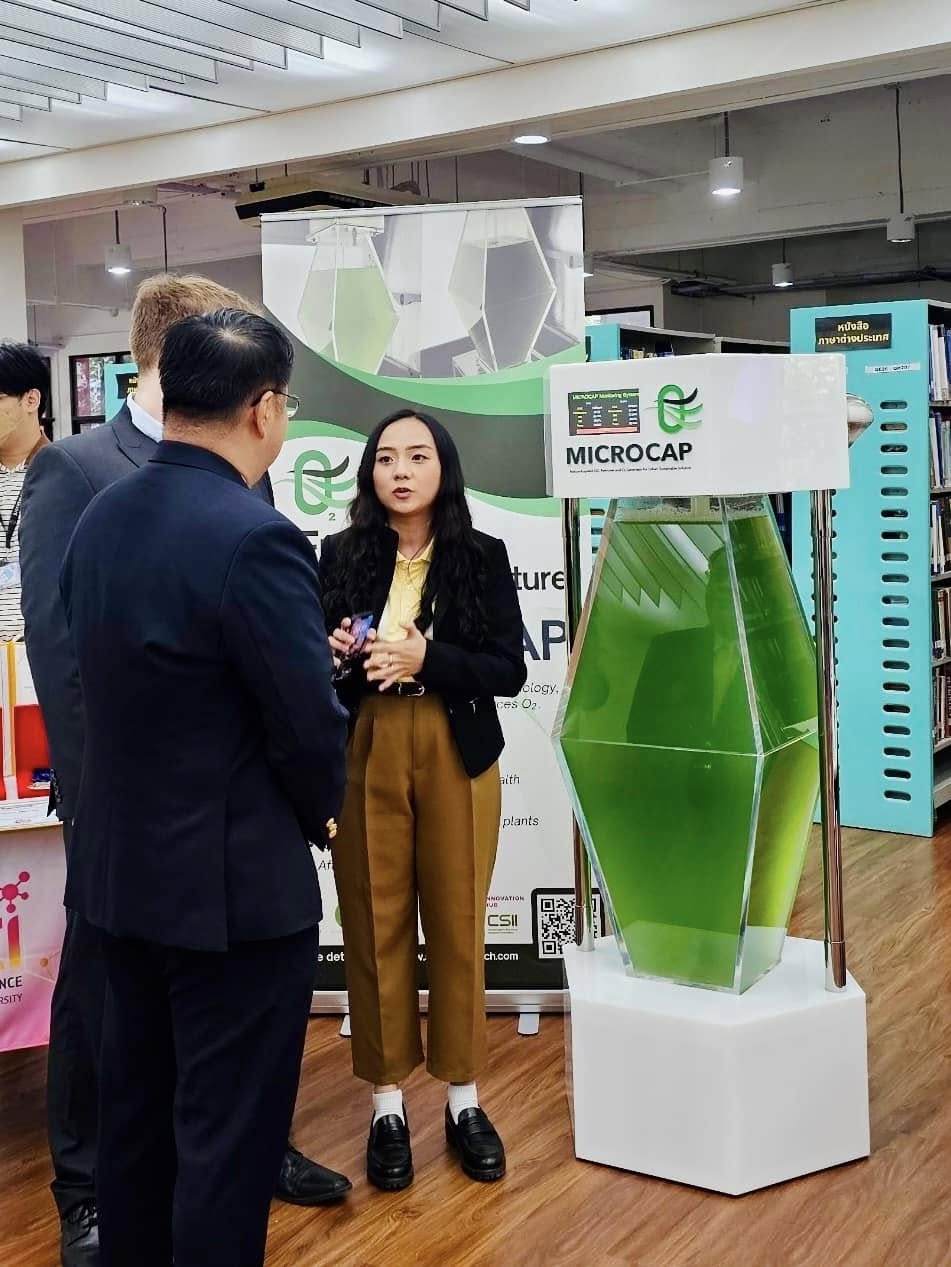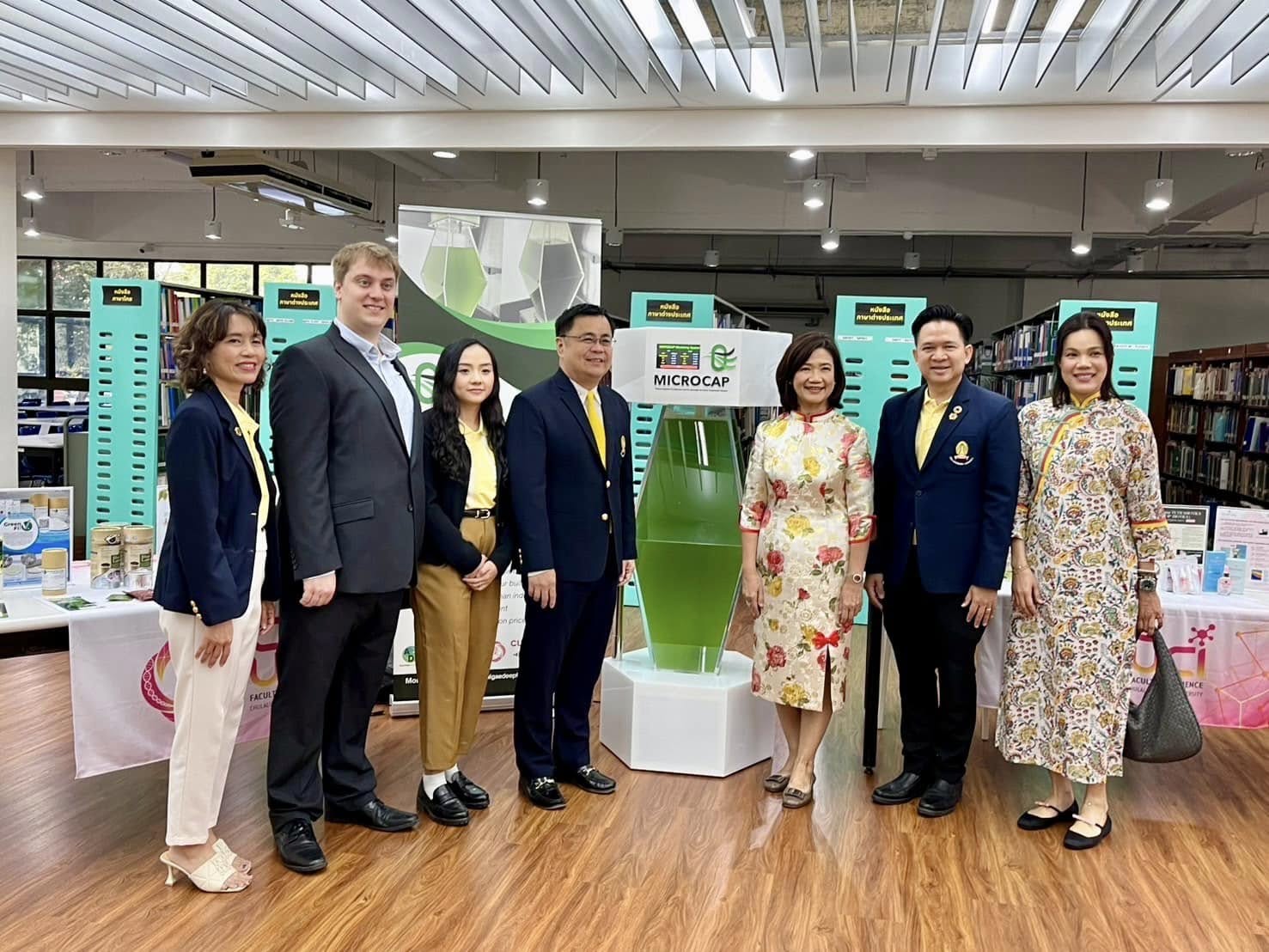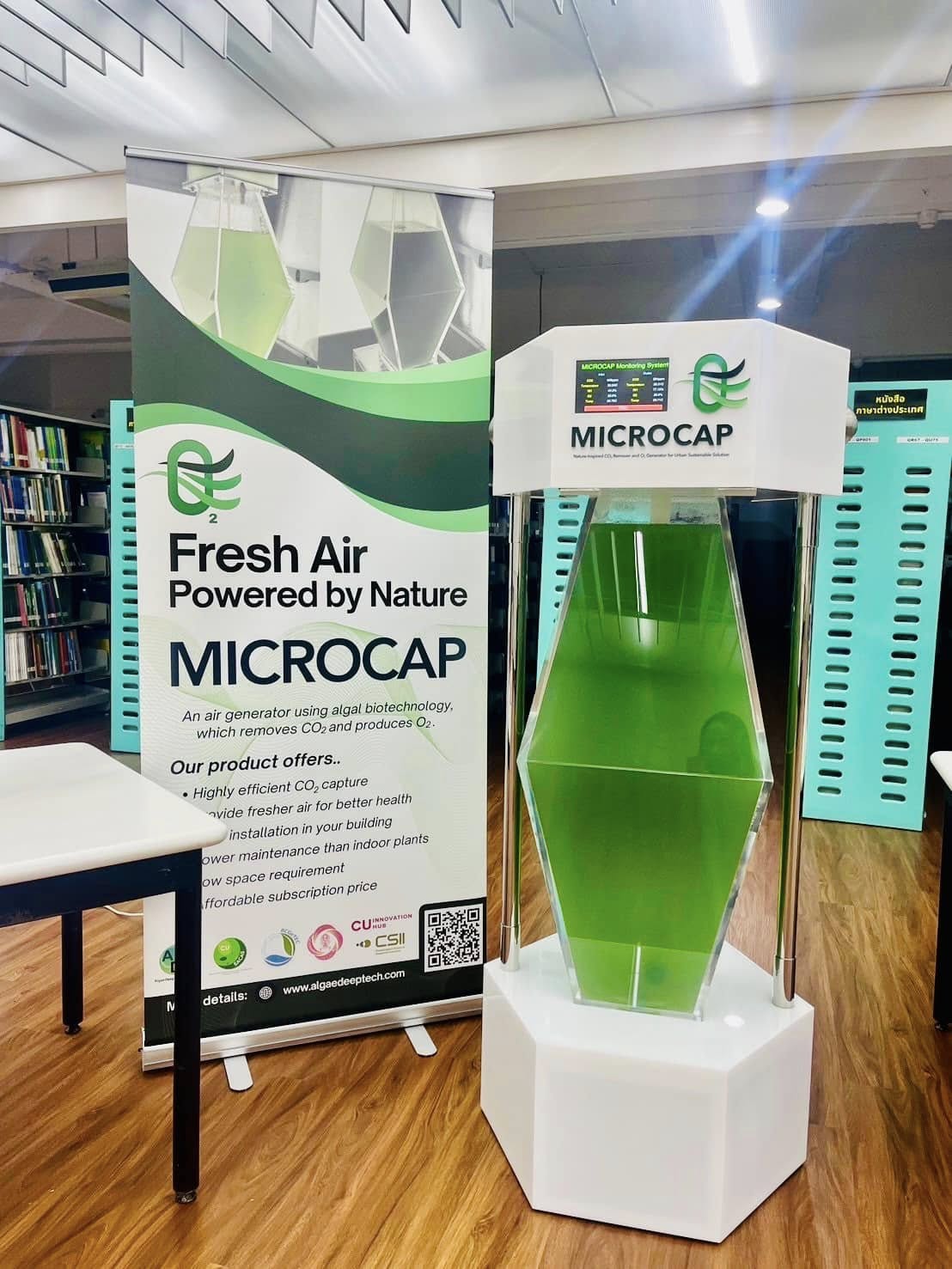
On January 29, 2024, a remarkable advancement in biotechnology was unveiled on the 108th anniversary of the Faculty of Science at Chulalongkorn University: the MICROCAP - Fresh Air Powered By Nature.
What is MICROCAP?
MICROCAP is an innovative biotechnology product that harnesses the natural power of microorganisms to capture carbon dioxide and improve air quality. This breakthrough technology represents years of dedicated research by the NIAB team.
Key Features
- Nature-inspired: Utilizes living microorganisms for carbon capture
- Sustainable: Completely biological and renewable process
- Efficient: High CO₂ capture capacity
- Versatile: Applicable in various settings
- Eco-friendly: No harmful chemicals or byproducts
Technology Behind MICROCAP
The technology is based on our research in:
- Microorganism selection: Identifying and optimizing high-performance strains
- Immobilization techniques: Securing microorganisms in functional matrices
- Bioprocess engineering: Optimizing conditions for maximum efficiency
- Bio-architecture design: Creating effective 3D structures
Applications
MICROCAP can be used in:
- Indoor air quality improvement
- Industrial carbon capture
- Urban environmental management
- Educational demonstrations
- Research applications
Launch Event
The launch event was held at the Faculty of Science, Chulalongkorn University, and featured:
- Technology demonstrations
- Scientific presentations
- Q&A sessions with researchers
- Networking with industry partners
- Media coverage



Impact and Recognition
This innovation demonstrates:
- Thailand’s capabilities in biotechnology
- The potential of nature-inspired solutions
- The importance of academic research and development
- Practical applications of fundamental science
Future Development
We continue to:
- Enhance MICROCAP performance
- Explore new applications
- Scale up production
- Develop partnerships for commercialization
MICROCAP represents NIAB Lab’s commitment to creating innovations from nature that address real-world environmental challenges.
Acknowledgments
This project was made possible through:
- Support from Chulalongkorn University
- Collaboration with industry partners
- Dedication of our research team
- Funding from research grants
We thank everyone who contributed to making MICROCAP a reality!
photo_library Photo Gallery


